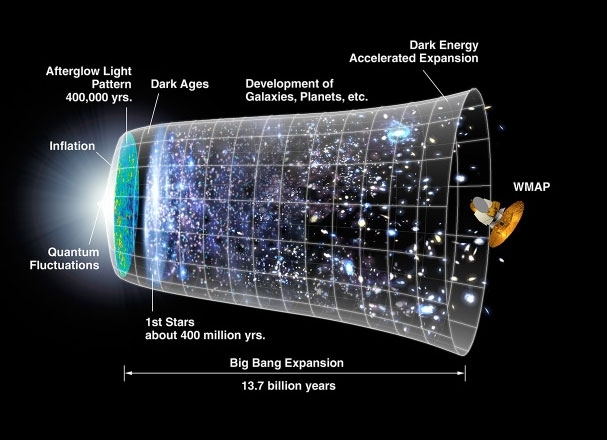A Brazilian scientist has dismissed the core principles of the Big Bang Theory calling it “only a speculation” and offered an alternative explanation for the origin of the universe. Juliano Cesar Silva Neves from the University of Campinas believes the universe goes through cosmic expansion and contractions in cycles for eternity. He also argued that:
“While there are many observations in cosmology that support the hypothesis that the universe went through a period of rapid expansion, but that there is no direct evidence that this expansion started with a singularity. The Big Bang as the initial singularity is only a speculation.”
The singularity, or the big bang, is widely believed to be the single point of infinite density and gravity that suddenly exploded outward in every direction leading to the creation of the universe. It is agreed upon that before this event, believed to have happened over 13 billion years ago, there was no space and no time. If this were true, then the big bang must have happened before there was space and time.

Neves' proposed theory does away with the need for a singularity, rather, he relates his theory to the concept of "Bouncing Cosmology". While this approach agrees with the fact that the universe is still expanding, it does not make an assumption that the universe started off infinitely small. Instead, it takes the approach that the universe is constantly expanding and contracting. These phases follow each other smoothly into each other like the ebbs and flows of a tide, noted the Space.com report.
The report mentioned that there are ways to measure evidence of rapid expansion that kick-started the universe, like how the universe is actually expanding in all directions and how when distant objects are observed, they are actually moving farther away at an accelerated rate. Another piece of evidence that confirms initial rapid expansion is the prevalence of heat left over from the rapid expansion called the Cosmic Microwave Background (CMB). The heat is visible everywhere and travelling in all directions, but seemingly without a single point of origin.
Scientists have come to understand that CMB first formed 380,000 years after the first expansion, when atoms began to form and the universe at the time became transparent. All of this, while observable and measurable, does not point out to a singularity, supporting Neves' argument that the big bang might have never happened.
Neves said his "cosmological model was built from studies in regular black holes", and as a result does away with the need for any singularity. Regular black holes are ones that are thought to exist without a singularity in the middle. The mass in the centre of a Regular black hole is not an infinite constant, but depends on its distance to its centre.
“There is no empirical evidence for bouncing cosmologies today,” admits Neves, “but there is no evidence for the initial singularity as well.”
